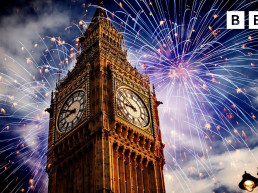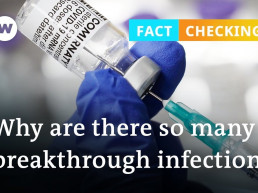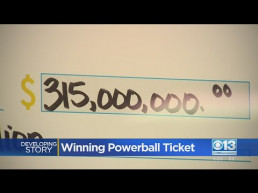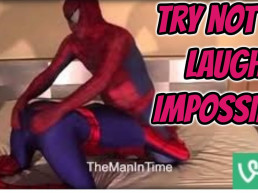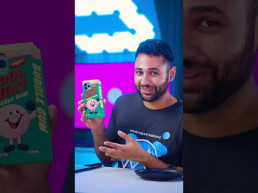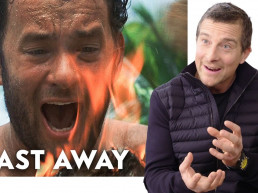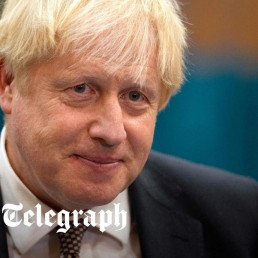
Video reading area
Origin Ten Technology is driven by a desire to make the world a better place.
This area has been designed to improve Video accessibility for user with hearing problems and for those who just prefer to read.
Watch again: Boris Johnson hosts children’s climate press conference at Downing Street By The Telegraph
Hi, I’m Scarlet. Atcha, and I’m a presenter for FYI, which is a weekly new show for the sky kids. The cop 26 climate conference, might be our best chance to get action from world leaders, and it’s our future that’s in their hands. It’s so great to see how many of us kids are here today to show how much you care about the Earth to ask questions and put forward our ideas and what we can do to protect it, but to world leaders listening. This one says, he is I’m so pleased to introduce our prime minister Boris Johnson.
Everybody come on. Hello everybody. How are you? Thank you very very much for coming today. And I’m absolutely thrilled to to see what I’ve got with me. I got I’ve got Tanya steel who is the chair of the World Wildlife Fund, which is a wonderful organization that campaigns for nature around the world.
But the reason we wanted to get this this group in today was because we’ve got a very important Summit coming up in just a few days time and perhaps most important Summit that this country has had in our lifetimes and this is the opportunity for the world to try to stop climate change, getting out of control your I mean by climate change, the stop the the temperatures from going up and up, and up. And to keep the
Increase to 1.5 degrees by the end of this Century. We’ve got to keep it going to stop it overheating. And the only way we can do that is by getting everybody to cook to agree. All the world leaders to agree to reduce their output of greenhouse gases because he’s, you know, the gases are kind of swaddling the earth like a tea cozy if you know what I mean by a tea cozy and they are, they’re stopping the
They’re they’re creating this greenhouse effect, that makes it hot, makes it hotter and hotter. And the way to do that is to get in Woody to commit to reducing CO2, reducing carbon dioxide reducing the amount of coal that we use stopping using cars with internal combustion engines getting. She’s making sure that we have hundreds of billions of dollars to help countries around the world.
To adopt Green Technology and plant gazillions of trees. I mean, I can’t tell you the number but we need to get a halt and reverse and reverse the deforestation of the planet. So we need to plant so many trees that we stop the deforestation of the other planet by 2030. So that’s the that’s the plan for that for the cop Summit. We need to as many people as possible to agree to go to Net Zero.
So they’re, they’re not producing too much carbon dioxide by by the middle of the of the century now, I think it can be done. It could be very, very tough, this Summit. And I’m very worried because it might go, it might go wrong and we might not get the agreements that we need, and it’s touch and go. It’s very, very difficult. But I think it can be done. And I think if you look at what the UK has done, we’ve cut our own CO2.
Asians massively, we cut coal emissions massively. When I was a kid. I was your age 80 percent of our energy came from coal. Do you know who you know what it is now?
Anybody about 1%. So we’ve got solar power. We’ve got wind power. We’ve got all sorts of ways of producing energy, more in a more carbon efficient when and we’ll more Greenway. But, listen, that’s so that’s what we. That’s what we got to do. Now. We’re going to I’m going to go to you but because you’re all journalists, is that, right? Yes, and I’m going to, I’m going to, this is, this is the difficult. This is the dangerous moment. Now, when I’m going to ask you, to ask your questions and
Tanya and I are going to do our best to answer them. So let’s let’s go first to Alice from Liverpool.
It happened. We reacted quickly and treated it like an emergency. Why are we not doing the same for climate change, right? Well, Alice, thank you very much. And that’s I think a very fair criticism of the, of the world because I think that people are a bit, you know, they don’t think about it with the same urgency. Perhaps has that. As, as with Kobe didn’t, and they need to and the scientists are
But were right about covid and I think that there probably are right about climate change to their right. That this is a problem that is that is really dangerous for the planet and we need to fix it. So we are getting as urgent as we as we can. And we’re trying to get the whole world to focus in to agree on on Net Zero by 2050. And if you think about it, the it was only a couple of years ago that the UK.
We were the first country in the world to legislate for, for Net Zero. And when we took over the running of the cop Summit, I think about 20% of the, the world had committed to Net Zero and we’ve now got 80% of the world’s economies committing to it. So, we are speeding up, but Alice, I share your. I share your alarm about about where we need to be. I think world leaders.
Need to grip it now and the people who care if the people who worried the people in that the small island states in the developing world places like Bangladesh, which face potentially catastrophic flooding as a result of of climate change. So we’ve got to be urgent on there. Bob Tanya. Yeah, I mean that perhaps p.m. If I may a Dallas that’s an excellent question. The science is telling that this is an emergency and we need to take action now.
Now, as well as in the future, we know we’ve got lots of innovation, lots of commitments. But what are the actions that world leaders are taking right now? To ensure that we’re not putting too much carbon dioxide in the atmosphere. But also, what are we doing? That can help it in terms of restoring nature. Nature is one of our heroes in helping to tackle climate change. It draws down so much carbon and as the PM’s highlighted, what about all those communities that actually haven’t contributed to climate change and are being impacted today through floods through fires.
How can we help pay our fair share of helping them to make some of the other stations to dead dead? Right? Thanks Tanya. Achiara from North London.
Yes.
We know that, you know, the dangers of climate change. What one thing could you commit to do to help tackle it?
I think the best thing I can do is do what I just said, you just get, we’ve got more than 100 leaders coming to, to Glasgow in the. It’s gonna be the biggest Gathering of world leaders since the pandemic began the biggest Gathering of world leaders in this country for a very long time, and I’ve got to get them to agree to save the planet and it means each of them making some sacrifices.
Eyes, each of them are going to agree to do something, that’s difficult for them. Whether it’s stopped using coal-fired power stations, or give some money, to help the developing world or move. It will start using electric vehicles. These things won’t be easy and or to make a commitment to get to Net Zero by 2050. That’s that’s a difficult thing to do. You see, Tanya’s point about the the developing World. We’ve been putting the, the
CO2 into the atmosphere, the UK we had the first Industrial Revolution in the world. We began putting the burning coal to to create Iron and Steel and and so on and it all started in the basically in the Midlands in the in in the UK and 200 years ago or more. So we’ve been at it for a very long time. Well, as other countries haven’t been as guilty if you if you like of putting the the CO2 into the air.
And and so we’ve got a, we’ve got a lead. That’s my commitment to try to be. Can you think of a better one tiny I can add to it, always p.m. I think we must get world leaders to make, commitments leadership support a privilege and a commitment is one thing, what are the plans in terms of the action? We need to ensure that’s underway. I think I would also ask Business Leaders to play their part. They yes pretty much help look after and create nearly 60 percent of the world’s economy. So how are they ensuring that we’re tackling?
Climate change. But actually making it easier for all of us. In terms of the goods. We buy, or the things that we consume that, we know that it’s not costing the earth and its protecting everybody’s Futures as well. The right. Thank you. A Rahul from egham.
We know that 8 million tons of plastic has been dropped into the ocean each year. So, what initiatives are you introducing to reduce plastic use, especially in the food sector?
Mmm, well the plastic is a massive problem. And you seen what’s happening with with marine life is being choked by a plastic Turtles are dying of fatigue. It’s turning up. It’s turning up in the in the organs of virtually every marine animal and it and and plastic is starting to to be found within our own within our own organs. I mean, he’s playing the microwave. I got this right? I’m right, micro micro plastic surgeon.
Pitching are turning up absolutely everywhere. So we’ve got a real problem rule with plastics. The UK is moving away from we banned plastic stirrers were and, and straws and and so on, we were to weave, we charge for plastic bags, but we’ve got everybody’s got to learn to use much less plastic and particularly the the packaging industry not just food, but everybody there the whole thing. Look at look at the stuff when you but when you buy clothes everything is
covered in in plastic. So we’ve got to move away from that.
I think p.m. If I might add I think we need to move away from single-use anything. And we’re seeing plastic is clogging our Rivers, our seas and we’re actually seeing some of the pollution that follows as well. So how do we ensure that? What we’re consuming actually isn’t adding to that? And do we have some of the recycling processes in place to ensure that we have what we sometimes call a circular economy that the output of one process becomes the input of the next process and that’s where we need again. Some really
Marked, not just ideas, but you’re also commitment to ensure that we are starting to have no plastic in nature, anywhere in the world. And that’s the kind of commitment. I know we need moving forward and you can do it. I mean, the, the you can, there are, there are ways of moving beyond plastic making stuff out of seaweed banana leaves, coconut also, all kinds of stuff and and it works. We just need we
Just need to to do it and to get on and do their about 12 companies at the moment. 12, big corporations that are producing the overwhelming bulk of the world’s Plastics. Big famous, drinks companies that you may know, and I won’t name it, why not? But I won’t name them. Do Coca-Cola for instance, and others which are which are responsible for producing huge quantities of plastic and we’ve got it. We’ve got to move away, move away from that, and we got to find other ways of
Catching on and selling our stuff because it’s just it’s ending up in the ecosystem.
I think also plastic completely unfair, blow. No, I was actually saying that Plastics quite symbolic as well in smaller ones. No, no, I won’t name any at the moment, but I was actually and I know that many of the children, young people here, know, that plastic is often quite symbolic of how we’re treating our world. In terms of either throwing things away, not respecting, not looking after sometimes very, very precious resources. So we do need to think about our economies for the future as well in terms of ensuring that we’re looking after.
All our resources that we’re not wasting anything and we’re certainly not throwing it into rivers or or into oceans as well. That we need to take care of our resources because we’ve only got one planet and certainly only one planet shop. It can only keep giving us. So many Resources, Director Morgan from Cardiff.
Do to protect our oceans and Marine Wildlife. Well, well, what we can do is we can, we can consecrate, we can protect huge areas of the ocean and say that that you can’t fish in them and you can’t all you can’t use them for for anything except the, the protection, the conservation of Nature. And what we wanted to do is,
To ensure that 30% of the Season, oceans in the world are so protected so that they become Wildlife reserves by 2030. So it’s the 3030 a campaign and the UK are you may not know this but the UK has huge amounts of see we, you know, around the Antarctic around Tristan da cunha and the Atlantic we have a third of the world’s emperor. Penguins are British.
Do you know that? Yeah, so we and we can protect these Marine areas. That’s what work. That’s what we’re doing.
And again p.m. If I might add that our oceans are the like the beating blue heart of our planet. In terms of the role, they play in certainly supporting so much life, but also in terms of drawing down so much carbon from the atmosphere. So it’s only healthy oceans that will enable us to do it and we need to protect them. But we also need to ensure that some of the regulations are a bit stiffer, the often. They’re what we call paper parks are on. There isn’t enough supervision. There isn’t enough, stop.
Of overfishing and actually also some of the kinds of fishing are taking far too many fish out of the sea and if we don’t have a healthy ocean, that’s really bad for marine life. It’s also really bad in that it cannot help us. Counteract climate change change for the future. So if anything we need more action and more legislation, but actually more monitoring to ensure that we look after our oceans for the future.
Thank you very much, Lucas from Dundee.
I’m from Scotland. Do you think world leaders are listening to us? And you think cop 26 will make a difference?
Lucas. I do think the world leaders are really starting to listen to get back to Alice, has questioned the beginning. I think that they are starting to see how urgent this is and what an emergency. This is I’ve talked to a lot of them in the last few weeks and they’re making some some good commitments. So I told you about the 2050 pledge, so you’re not admitting, you’re not a net producer of CO2 anymore by the middle of
Century. I think the Australians have just decided to do that. Now, that was actually very difficult for Australia because Australia is a very heavily dependent on, on coal on, on lots of carbon producing Industries and they’ve done a heroic thing, the Australians in getting to in, getting to that commitment. And I hope that they’ll be joined by lots of other.
Countries with lots, more countries in that region for the, for the, for the cop Summit. So, I think the way it works is that everybody is there’s a lot of peer pressure but the, the summit and I think the people feel that they they want to follow the example of the of their friends and their their neighbors and and that’s that we’ll have a that will have a good effect on on the outcome. I hope. But it’s you know, it’s
It’s very, very far from clear that will get the progress that we need.
Perhaps just add Lucas. I do think world leaders are listening to the science more and the Sciences is unequivocal and the science tells us that we have to keep global warming to one and a half degrees. We don’t have a choice. Otherwise, it will make for a much more unstable future and we know we will lose a lot. We know it one and a half degrees. We will lose 70% of our coral. Reefs at 2 degrees will lose them all. So this is a really important moment, the most important Summit in a generation. And I know in my
The station’s. I do ask world leaders to listen to Young people who might be twenty seven percent of the world’s population, but young people are hundred percent of the future. So it is critical that your voices are heard.
Thank you. We’re going to go to some virtual questions now, I think from Olivia, in County down in Northern Ireland, Olivia. Hi.
I am a loving family and I am seven years old and I’m from 20 dime. I am worried that the plastic gets into the ocean and the animals get stuck in it and die. My mom uses a reusable cup and I use a reusable water bottle and we use release of parks that free toothbrushes. So,
What are we going to do to make sure that people ever sisters, use us plastic? Thank you. Thank you very much Hayley. What about reusable toothpaste tube? You have a reusable toothpaste dispenser.
It’s not yet know that’s a development that we need to encourage. We need to have Municipal toothpaste something Runner, work this out later, but we need to we look the the issue with with plastics is that it’s not recycling. Isn’t the answer. I’ve got to be honest with you. Recycling is just, you know, you you’re not going to like this as if it doesn’t doesn’t begin to address the problem.
You cut. You can only recycle plastic a couple of times, really, and it’s what you’ve got to do is stop the production of plastic, stop the stop, the first use of plastic. The recycling thing is is a, is a, is a red herring and you’re quite right in what you say about the the damage to Marine wildlife.
We’ve got we’ve all got to cut down on our use of plastic. That’s I think that’s the that’s the only answer.
I mean, I would add to that. I think we have to reduce, we have to reuse. I do think we need to do a little bit of recycling p.m. And have some system to do so, but it doesn’t work. I don’t, I don’t want, I don’t want to be, I don’t want to be doctrinaire about this, but it’s just, it’s just not as if people think that they can recycle our way out of the problem, you know, we’ll be making a huge mistake. We need to reduce, we need laser. We need fast. Varlets, we need, and we also need to restore the balance of nature. We do.
I think what I would say is two things, I think we could do with a Level Playing Field and perhaps even more legislation in place to help companies who want to make some of these changes. I guess the other thing is and certainly as we were we were saying before Olivia, is that plastic is a visible example of how much we’ve damaging nature whether this is on land. And whether this is on C, in terms of what are we doing to our Rivers? Actually how we damaging so much of our land, not many people know, but the UK is probably one of the most
Nature depleted countries on this planet and that’s why there certainly is a lot of movement plans to start to restore our Countryside and ensure that we do enable and help farmers actually start to restore it for the future as well. So there’s a big job to be done on land and on sea, but also, how we’re using precious resources to are you, are you in favor Tanya of rewilding, parts of the the UK where possible? I think we need to bring nature back. I know that some of the young people in this room will know the statistic that
Our planet, ninety-seven percent of the mass of mammals on this plan is as humans and our animals or domestic animals. Just three percent is left for the wild. So so sad. Do we start to rebalance it? And I think we certainly could stop by rewilding our oceans. There’s a lot of space. Some of the human beings for the animal. Well, that would that would be we could have a vote later and asked if there’s any candidates, but certainly we need to take our
Disability seriously, and and help bring nature back. Because when you give nature the chance, it will recover it regenerates very, very quickly. Indeed. It does. It does. Thank you. It’s good to Erin and Amber from Sunnyside Primary School in Glasgow.
I bought is a solution Defenders. We are aware of the importance that the ocean and blue carbon will play and so on climate change, but when we are reading the seabed dredging competitions much carbon as the aviation industry, how will you tackle that, but support the fashion communities to thank you very much Erin and Amber. Look at that is a very, very good question and I’m against TB dredging for lots of reasons. First of all, because I think it’s
It does it’s against the interests of sustainable. Fisheries it you you dredge up far too much. You take its indiscriminate harvesting of everything that’s on the seabed and it does huge damage to the marine environment. So it’s disastrous from that point of view, but then there’s a I’m against it also from the point of view of of climate change because what you do with and and Tanya were and I were discussing
Cussing, it’s only time. Tiny was telling me about this, what you do with with Marine dredging with seabed dredging, is it used? You stir up a lot of the the the matter at the bottom of the sea and you release CO2, but you also see you also damage the Marine vegetation that is helping to fix the carbon. This whole Enterprise is about trying to reduce the amount of carbon dioxide that we’re we’re emitting generally.
And you’re doing huge damage that way so we want to move away from it and Erin and Amber. You’ll be pleased to know that one of the advantages of moving out of the common Fisheries policy is that we can sell our own standards and do our own thing. And that is what we’re going to do.
So, I know we were going to move to some extra questions p.m. As well. Weren’t we in turn? Yes, we got time for a few questions. No, we haven’t got it. Well, then we go too far around everybody. What, what what we should do Tanya is I think around everybody and asked everybody if they have a single question or a single point that question that you would like me to make and Tony is going to be a cop as well. But with the what’s the single
In that you would like me to say, to other world leaders. Why did you want? Who’s got, who’s got a point there? So he can zap branded a quick for a quick-fire way. Let’s just, let’s just go go one row at a time. Yes, starting with you.
They need to start joining in as well. And it’s not just UK. That’s making an impact. Yes, will do. Thank you. Well, I will certainly tell them that.
Could you please tell the world leaders that they need to start?
Cutting CO2. No, I was going to say that the bush fires in Australia. The bush fires in Australia because it’s really it’s hurting the trees and the Animals there. That’s good. Absolutely great arteries because they help with the CO2. Yes, dead, right? Absolutely, right. We will, and these fires that we’re seeing and other,
Floods and so on. These are very often driven by by the change in climate and extreme weather patterns that we’re seeing as a result. Yes.
Lots of people to help with the air pollution are using electrical cars, but, of course to make the electrical closet with the factories. It’s takes quite a lot of fuel, and it’s kind of making even though it comes with not consequences, but good.
It gives you a good result. But the process of doing it isn’t the best helping. Thank you, right. That’s absolutely right. There’s there’s, there’s, there’s no magic answer to any of these problems even electric vehicles. Although they produce no, CO2. There’s a lot of CO2 that goes into making them, but overall it’s much less than right. Now. Should we go for maybe three more questions. Is that what do it? Well, I well I well we’re gonna have everybody.
It’s not as simple as also, about electric cars, because lots of people don’t want to buy electric cars because they think that there aren’t enough electric charging spaces around. So, if you actually want to drive, then in you, it will be easy to run out, so that if there were more than it would encourage more people to buy electric cars. Thank you, actually.
People will be able to charge their electric cars at home, but you’ll never be more than 30 miles from an electric vehicle. Charging point will make sure that that happens we’re putting in huge numbers of EV charging points. Yes, lots of people around the world would like more green spaces and I think that would be a really good thing for the climate because having trees and plants around is good for the air pollution and the CIA.
Oh to emissions very healthy completely. Right? We need a trillion trees on this planet so big job to do. We’ve got three trillion at the moment. Next to trot Nixon really four trillion trees. She want an extra extra trillion. Absolutely good. Yes. To stop using more plastic in the supermarket because mostly with fruits and vegetables. You don’t really need as much. That’s totally right plastic. It’s not really.
Very brilliant. Thank you.
Why don’t you lower the prices of electric cars and solar panels if you’re wanting to help the cleaner? Thank you. They will. They will get lower as more and more people start to use them. And I was talking to some manufacturers who are going to bring much, much cheaper. Evie’s to Market this very very soon. Yes, I think that you should tell the world leaders test. Stop burning the for the country stop burning of fossil fuels and so there can be a more.
The ball way, and a more sustainable way of getting around, and keeping on the lights in the house and stuff like that dead. Right? So we want to stop but everybody burning coal by 2040. And in the developed world, we want to stop it by 2030. It’s going to go as fast as possible. I just wanted to ask you a really quick question, whether you’re still going to support new, coal, mines being created in the UK. We don’t want to support new coal mines. But what we want to do is to continue
Our progress towards zero, a zero carbon future. And that’s our, that’s our approach.
I would, I would like you to incentivize Industries to be eco-friendly in the materials that they use.
Okay, we’re certainly going to do that.
To help would use carbon emission. All schools should have electric mini buses that pick-up and drop-off children what it sounds like a brilliant idea. Okay, I will where we’re putting forward by bit, where were financing. Loads of zero-carbon buses, but we want to get to zero carbon buses as fast as possible or even hot, you know, hydrogen buses. You could do what you could walk or you could, or you could cycle the school, who wrote who Cycles to school.
Find Santa who walks to school. That’s the stuff. That’s the way to do it. Okay, good.
So something that I just like his tell, the world leaders is that everyone saying to like stop burning coal and stuff but some people in some places they’re doing that so that they can have money to put food on the table and stuff. So, what are some things that you like my due to like, to let that those people can because
Yeah, I understand what we’re doing. You’re completely right and it’s not fair on on countries that are very poor to ask them to make these sacrifices when they they need to develop and to grow so we’re putting in 100 billion dollars a year. Is what where we want that the the the cops on it to agree that in order to help those countries on the on the path to Net Zero p.m., Is it fair to say that some of the most developed countries are taking on harder targets as a result to really start to
Yes, okay, I’ll talk. It is is incredible. But we’ve already cut CO2 by 44% on 1990 levels, but the economy has grown massively. Who wants to come in? How I think we’re almost there. Yes, I’d like you and the world leaders to explain. How can we make Farmers? Take a look at their land and how they can use it to feed people more sustainably.
I think that farmers are longing to do that and to have a zero carbon future that agriculture unfortunately does produce a lot of a lot of greenhouse gases. It’s one of the biggest problems cows, burp, a great deal. And you know, MIT gases and we have to do, we have to encourage them.
To stop burping and we can do that. And perhaps if I may leading them breeding, but if fume seaweed, seaweed is an answer. I mean, the number thing we have to do is stop burning fossil fuels that is the quickest way to help move us, but quickly, from a food perspective p.m. That is the second areas of global emissions. It’s nearly a quarter of global emissions. So we’ve got a big job Steve in terms of what we eat. But how we help farmers as well. Yeah, who’s next?
Yeah, world leaders that all schools should have solar panels on their roofs and planted these two trees. I know this will be expensive but I think we can do it. Okay, we’ll have what ultimately, that will be the kind of thing. We kind of solution. We have everywhere, but well, there’s a lot of pressure for solar. Yes.
Kitt scientists make yogurt pills for cows that stops them. Creating greenhouse gases yogurt pills, that could be. I thought it was silly but in I said, Yogurt, that could be very, I honestly don’t know, but we, but the we’re making progress in breeding cows that burpless Untold which is the more polite, cows know what sacrifices year and world leaders would make to
Call world a better place.
I’d certainly encourage everybody to stop using hydrocarbon cars. And I’d love to, I’d like to get back on. I used to I used to ride Everywhere by bicycle, which was a wonderful, wonderful life. Anyway, yes.
I like you to tell the people around the world that we should stop using a lot of we still can’t believe should stop using a lot of electricity, a lot of the time even when you don’t. Yes, because all the icebergs are melting you did what we actually got to consume less to. I’m sorry to say we need to turn the lights off when you’re not using them. That kind of thing. Yes.
Who’s next?
I would like you to tell the world leaders to encourage more people to eat less meat or to have plant-based diets, right? Okay. Whoo-hoo hands up it. Everybody everybody who eats no meat.
Really hands up who eats meat?
You eat lots of meat there, right? Okay. Well you think we should have plant-based diets where I can see. I can see I think in the future I’ve got to be I think in the future we will move away from eating as much. I think that already were Progeria science is developing meat. Substitutes that are basically engineered in the lab on there that are very like meat and you won’t be able to tell the difference between a bioengineered hamburger.
Yeah, I’m serious. And a real hamburger and that will be the future very, very soon. I mean, it’s already here. I think it is definitely and I think there’s also things we could do to mix up our meals, maybe a bit less neat and put some beans in. It can still be really tasty but great for our climate. So it’s making tools during the lentils lentils or just be too tasty in a lasagna or something. It can be really good beans, beans? Beans. Have B to show you. It can be
Definitely not. No that’s a bad night of cooking for sure.
God. Yes, my design of a water-powered corner. Hope you can consider it a water-powered carve fantastic idea. Thank you. Like a like a steam, cut a steam engine or yeah and starts putting holes in the atmosphere and stuff submissions, a bit like the electric cars. Fantastic. Well, we should, I think that’s right. Leaving a hydrogen could well be yes.
It’s Alice thing. You’ve had a question but gone, and I’d already said something about him. I think we need to say that. Even if you’re not getting climate, change is not affecting you. We need people to understand that it’s affecting other people and we need to not just think about yourselves. Yeah. Well it’s about it will affect you and it will affect everybody. It will fit your children and your grandchildren. So we got to fix it. I’ve got the final question. Last question.
Maybe to encourage more people to walk or ride a bicycle. Maybe you could make more places like for pedestrians. So people can only walk or ride a bike or scoot beautiful. Yes. I totally agree with that and we should I think you got to be careful. Sometimes about mixing cyclists and pedestrians too much, you know, cyclists can can, can can still knock over pedestrians.
Got to build proper cycling Lanes, which I did in London as I did a lot of them. Yes, the last question.
The yoga and seaweed, we should give them two cows, because even to people, they do really good effects on the body. Really? Yeah, yogurt and seaweed. Well, perhaps were all going to be living on your good and see what he did. It’s about healthy falling, I guess which is great for the future as well and great for Landscapes and our Rivers as well. It keeps it cleaner and less runoff into those. Yes.
Yes, brilliant. Well, thank you all very, very much. Wait, one more question. Sorry.
I don’t have a question. But is it, okay, if I say a way how to stop climate change? Yes, please. Maybe you could put some roof Gardens on the top of Heart of new buildings and some at least some vertical Gardens and world world. So we can get more oxygen and we can live more and then we can stop.
My change. Yes, that’s a brilliant idea. When we do insist on that now and a lot of places planting trees on the, on the roots and creating roof Gardens as well. But look, I think thank you everybody for your wonderful contributions. Thank you for all the suggestions. I think all those ideas were certainly going to be taking up with other world leaders, particularly the basic point that they need everybody needs. Now to do what the UK is is doing and so on.
Your idea is good stopping the bush fires, having more more and cheaper electric cars. More green spaces with more trees, trees on the roofs, solar panels on the roof and, and yogurt, and seaweed all around, fantastic. Thank you all very much. Thank you.



